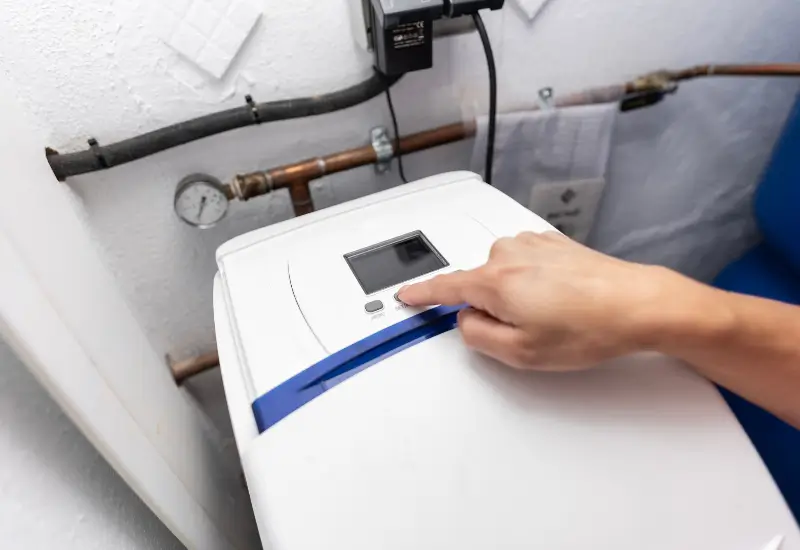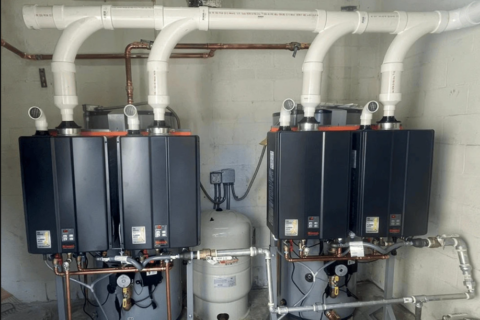What Do People Use Water Softeners For?

Water is an essential part of daily life, but not all water is the same. If you live in an area with hard water, you might be familiar with the challenges it brings. Hard water can cause issues ranging from clogged pipes to dry skin, making everyday tasks more difficult than they need to be. That’s where water softeners come in. These systems transform your water supply, solving many common problems and enhancing your quality of life. Let’s explore what water softeners are, how they work, and why they’re such a valuable addition to any home.
What Is a Water Softener?
A water softener is a device that removes excess minerals, such as calcium and magnesium, from your water supply. These minerals cause what is commonly known as “hard water,” which can lead to several issues in your home, from plumbing problems to less effective cleaning. Water softener systems operate through a process called ion exchange, where hard minerals in the water are swapped with sodium or potassium ions. The result is “soft” water that’s gentler on your pipes, appliances, and even your skin. This innovative system ensures that the water flowing through your home is free from the problematic buildup that can cause long-term damage.
Why Do People Use Water Softeners?
People turn to water softeners for a variety of practical reasons, all of which contribute to the overall comfort and efficiency of their homes. Hard water can wreak havoc on plumbing systems by causing mineral buildup inside pipes, leading to clogs, reduced water flow, and even significant damage over time. By installing a water softener, homeowners can protect their plumbing and extend the life of their water infrastructure. Additionally, hard water negatively affects household appliances, such as water heaters, dishwashers, and washing machines. Mineral deposits accumulate within these appliances, reducing their efficiency and increasing energy consumption. Soft water prevents this buildup, allowing appliances to function smoothly and last longer.
The cleaning process also benefits significantly from a water softener. Hard water reacts poorly with soap and detergents, making it harder to achieve a thorough clean. This can result in dull dishes, dingy clothes, and stubborn residue on surfaces. Soft water ensures that soap lathers properly, delivering spotless results and reducing the amount of cleaning products required. Moreover, hard water often leaves a residue on skin and hair, leading to dryness, irritation, and a less-than-refreshing shower experience. Soft water eliminates this issue, leaving skin and hair feeling cleaner, smoother, and more hydrated.
Hard water also leaves unsightly stains and scale on sinks, tubs, and fixtures, which can be difficult to remove. These marks detract from the overall appearance of your home and require extra effort to clean. A water softener tackles this problem at its source, ensuring that your fixtures remain stain-free and shiny with minimal maintenance.
How Does a Water Softener Work?
Understanding how a water softener operates can help you appreciate its role in maintaining a comfortable and efficient home. When hard water enters the system, it passes through resin beads that have been charged with sodium or potassium ions. These beads attract and trap the calcium and magnesium ions that cause water hardness, releasing softened water into your home. Over time, the resin beads become saturated with hard minerals and need to be recharged. This process, known as the regeneration cycle, involves flushing the beads with a brine solution to remove the accumulated minerals and replenish the sodium or potassium ions. The system then resumes its work, ensuring a continuous supply of soft water for your household.
Benefits of a Water Softener
The benefits of installing a water softener system extend far beyond convenience. One of the most significant advantages is cost savings. Soft water prevents the buildup of minerals in appliances, allowing them to operate efficiently and reducing energy consumption. This translates to lower utility bills and fewer repair or replacement costs for appliances over time. Additionally, the reduced need for cleaning products and detergents means you save money on household supplies while also benefiting the environment by using fewer chemicals.
Comfort is another major benefit of soft water. Many people find that their skin feels softer, and their hair looks shinier and healthier after switching to a water softener. The improved cleaning results also enhance your overall quality of life, from enjoying spotless dishes to wearing clothes that look and feel fresh. Furthermore, the aesthetic appeal of your home improves as soft water prevents the formation of unsightly stains, soap scum, and scale on fixtures and surfaces.
Water Softener Advantages and Disadvantages
While water softeners are incredibly beneficial, it’s important to consider both their advantages and disadvantages. On the positive side, water softeners protect your plumbing and appliances, improve cleaning results, and reduce maintenance and energy costs. They enhance personal comfort by providing softer skin and shinier hair and ensure that your home remains free of hard water stains and residue. However, there are some drawbacks to be aware of. Water softeners require regular maintenance, such as adding salt to the system, and they can increase sodium levels in your water, which may be a concern for individuals on low-sodium diets. Additionally, the initial installation cost can be significant, although this is often offset by the long-term savings.
Water Softener Installation with Expert Plumbing Service
If you’re considering a water softener installation, Expert Plumbing Service is here to help. Our team of professionals can guide you through the process of selecting the right system for your needs and ensure proper setup for optimal performance. With our expertise, you can enjoy all the benefits of soft water while avoiding potential pitfalls.
A water softener is more than a luxury; it’s a practical solution to hard water issues that can save you time, money, and frustration. By understanding what a water softener is, how it works, and its many benefits, you can make an informed decision for your home or business. If you’re ready to experience the advantages of soft water, contact Expert Plumbing Service today. Let us help you transform your water and your life.
Request Your Expert Plumbing Service Today


